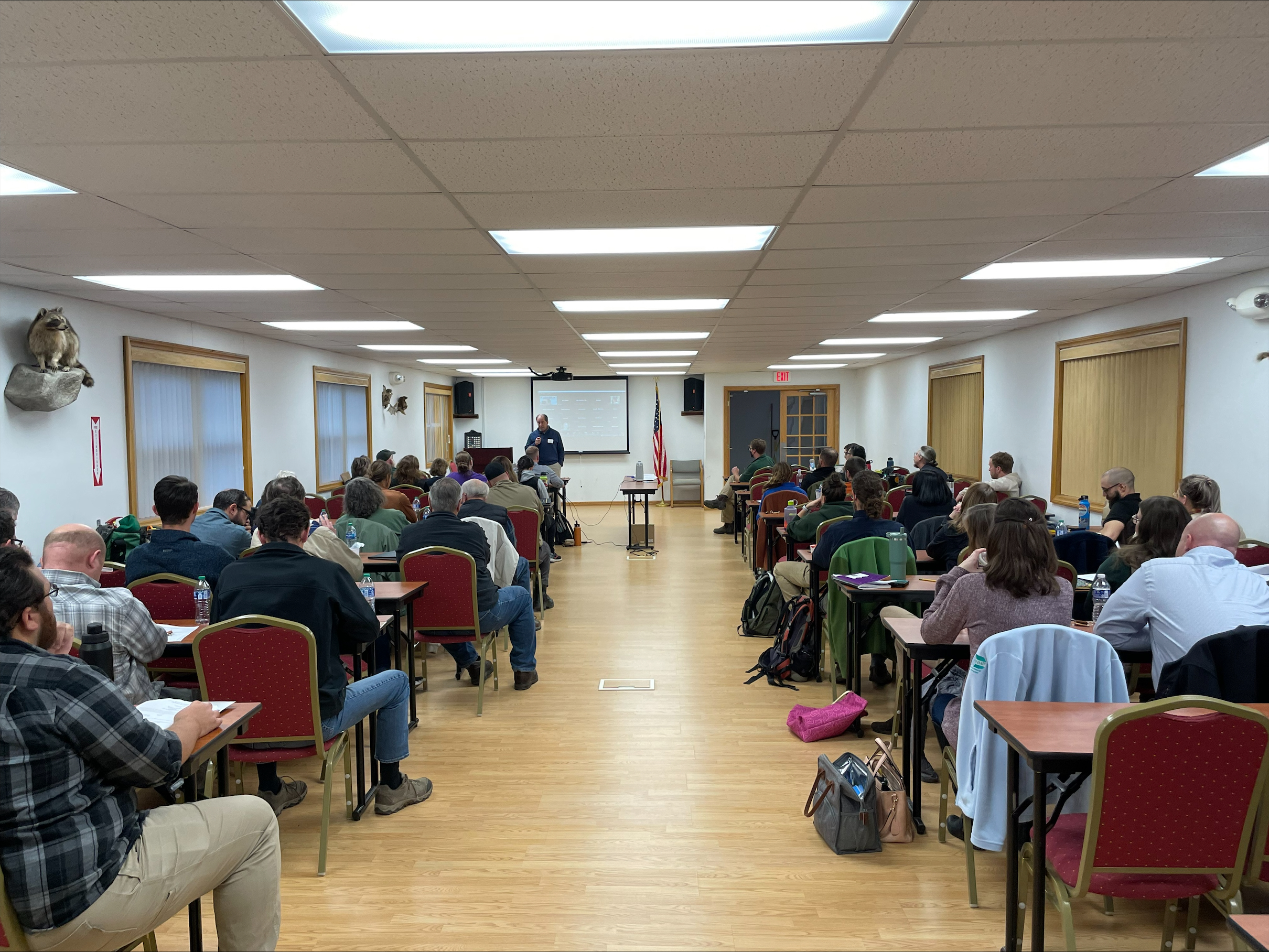Invasive species are a costly problem in Pennsylvania, and their effects impact virtually every economic interest and ecosystem. Their impacts are felt on our farms, in our waterways, throughout our forests, and in our pocketbooks across the Commonwealth, from our rural towns to our urban cities. A 2021 economic impact study from the Center for Rural Pennsylvania found that the annual impact of invasive species in the Commonwealth exceeds $100 million.

To address these issues, the Pennsylvania Governor's Invasive Species Council met with groups from 13 counties in Northwest Pennsylvania on November 17th. Representatives from state government, national organizations, universities, and local groups spoke about their projects, solutions and struggles with invasive species to a gathering of county conservation districts, conservation organizations, government officials and concerned members of the public. The discussion focused on a multitude of issues, including:
- Waterways choked by underwater hydrilla thickets
- Hiking trails becoming impenetrable from the vining plant mile-a-minute
- Diminished forest and tree health from constricting invasive bittersweet and porcelain berry, and the devastating impacts from emerald ash borer
- Fields and pastures overwhelmed with non-native stilt grass and thorny multiflora rose
Each of these species impact our state in different ways, but we see their far-reaching effects in some of our most important areas, like Pennsylvania's $132 billion agriculture industry and our $14 billion recreation industry. Invasive species also raise the prevalence of insect-borne diseases in humans and animals, damage our roads, water filtration systems, and other vital infrastructure, and impact our quality of life.
In each of the reports from the speakers, the nearly 100 attendees heard that while individual efforts have had some success in mitigating invasive species on the small scale, they all agreed that in order to have longer-lasting and broad-scale impacts we need to do more, and we need to do it together.
"In our current siloed approach, where each group is working on their own project, we just aren't making enough of an impact," explained Department of Agriculture Deputy Secretary Fred Strathmeyer. "Today's meeting shows we have many groups who are interested in being part of the solution. With a regional approach, we can build networks and forge partnerships to implement a comprehensive plan that will make a real difference."
To address invasive species issues, the Pennsylvania Governor's Invasive Species Council is proposing a Partnerships for Regional Invasive Species Management (PRISM) program in Pennsylvania. This program would establish six regions across the state, bringing together private landowners, government agencies, businesses, and non-profit organizations to coordinate work at the regional and local level.
Through PRISM, each region would be better prepared to:
- Leverage local knowledge and expertise by engaging with community groups and organizations.
- Allow different groups to come together and solve common problems.
- Expand local survey and monitoring to enact early detection programs.
- Coordinate efforts through a central "host organization" to maximize the impact on invasive species that threaten an entire region.
- Build upon existing work, making it more effective at a regional level. PRISM regions would assist with local priorities, not replace them.
- Share resources, equipment, and expertise across the region.
"PRISM is about partnerships. From the organizations in your communities, academia, and local and state government," said Strathmeyer. "Partners are everywhere, and we will need every one of them to get PRISM off the ground and keep it running. It starts in your backyard, but it affects everyone."
Learn more about the proposed Partnerships for Regional Invasive Species Management (PRISM) in Pennsylvania and how to voice your support by visiting the Pennsylvania Department of Agriculture's PRISM page.
Contact Kris Abell for questions or more information at krabell@pa.gov.
To view a recording of the Northwest Meeting, click here.